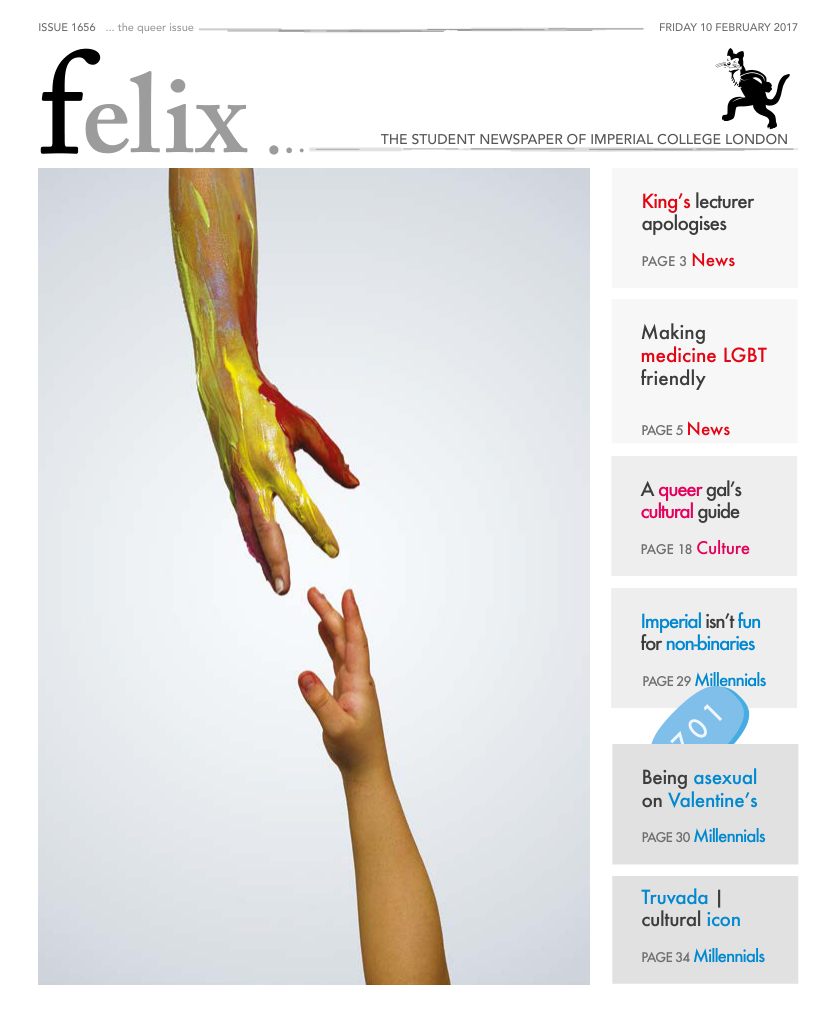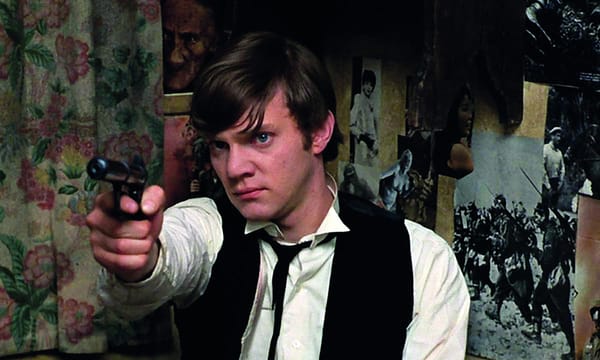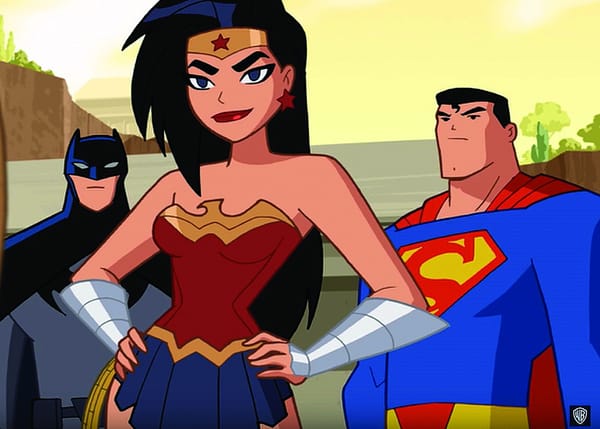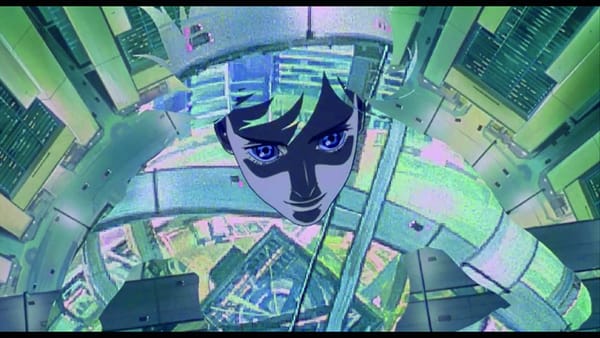British short films take us around the globe
The shortlist of BAFTA nominees for Best British Short Film and Animation are daring in their scope, but the quality of some leaves a little to be desired
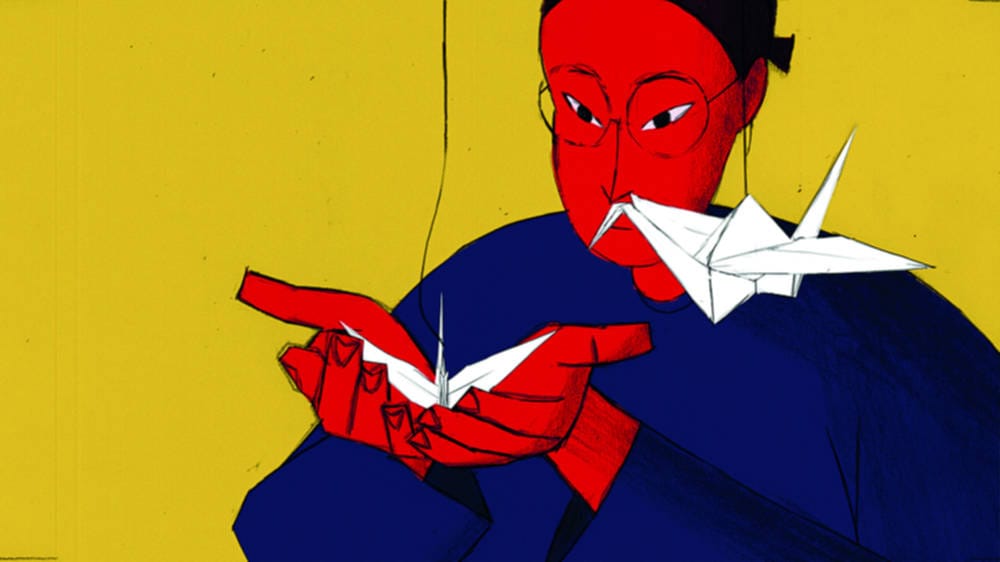
If there is a theme of the nominees for the BAFTAs for Best British Short Film and Best British Short Animation, it would probably be ‘journey’. Across the eight shorts, we are catapulted from one corner of the globe to the next, dealing with themes both big and small. One of the most engaging films, however, deals with the instantly-recognisable institution of the British police force: Charlotte Regan’s Standby takes place entirely in a police car, with all shots taken from the same angle. Andrew Paul and Alexa Morden play the officers, and we join them on a whistle-stop tour of birthdays, breakdowns, and promotions, punctuated by hilarious sequences of the two cops rapping along to Skepta. It’s not the most profound of pieces, but it’s lively and amusing.
The Party, on the other hand, deals with darker matters. From the initial title card telling us it’s set in Belfast at the height of the troubles, we know that something bad is soon going to happen. And indeed, it soon does: a group of adolescents celebrate in a small house, and a fugitive who plans on sneaking over the border has managed to sneak into the party to see his friends, unknowingly placing them all in great danger. With its heavy patina of 1970s tones, and shocking violence, The Party is a commitment to British realism.
Home, from director Daniel Mulloy, is probably the most-publicised film of the nominees. Released on World Refugee Day, Home shows a British family making a perilous journey from their comfortable home life to a war-zone, in a form of reverse migration. Initially, the short resembles an advertisement for Renault, but things shortly take a turn for the worse. Mulloy is good at initially building up a sense of unease, but this doesn’t continue until the end, and once the audience has grasped the concept of the short, it doesn’t seem to have much impact: it’s unclear how the short is supposed to make us any more sympathetic with those fleeing across Europe, especially compared to the harrowing real-life footage that has been present on the news for the last twelve months.
Samir Mehanovic’s Mouth of Hell similarly tries to evoke the viewer’s sympathy, telling the story of a boy with a sick mother who is growing up in Jharia, India, on the surface of a giant underground coal seam fire. Mouth of Hell, which mines (pun not intended) the stereotypical image of Indian poverty, is the weakest short of the selection, and its storyline is trite. Mouth of Hell attempts to undertake a complete narrative within under 15 minutes, which is – evidently – easy to do badly. It’s a problem that runs through most of the nominees, with only Standby managing to balance things well.
This difficulty with narrative is perhaps the reason why the best nominee for British Short Film is a documentary rather than a piece of fiction. Richard John Seymour’s Consumed takes us on a journey through the modern means of production, taking us on a near-wordless tour of China’s manufacturing industry. Starting with shots of landscapes and mines, Seymour shows us the vast environmental destruction caused by human greed, before exploring factories which produce goods for Western countries. A worker tells us that October is the busiest time at the factory because of the Western holidays, foreshadowing the fact that the consumables being produced, rather than the traditional images of computers or iPhones, are actually novelty Christmas items, that will probably be thrown away before the year is out. Comparable with Zhao Liang’s Behemoth and Jia Zhangke’s A Touch of Sin, Consumed powerfully questions the impact consumption is having on the planet, both in environmental and human terms. Delicate, austere framing is juxtaposed against the sheer horror of what we are being shown, in a manner reminiscent of the photographs of Sabastião Salgado.
Jennifer Zheng’s Tough also centres around China, but in her animation it is China as filtered through the experience of her mother, who grew up during the Cultural Revolution, and Zheng herself, who was born in Britain. Drawing on the misunderstandings and miscommunications that have inevitably developed as a result of the two women experiencing the world through two different mind-sets and languages, Tough explores issues of race, identity, and culture. Zheng’s animation is beautiful and haunting, filled with exquisite images: agricultural workers swishing scythes through fields of wheat; children running through Chinese characters; Zheng herself folding paper cranes at a kitchen table. The result is a small masterpiece, which is moving in its simplicity.
The other two nominees in the Best Animation category have a more complex animation style, but lack the emotional nuance of Tough. In A Love Story, directed by Anushka Kishani Naanayakkara, two strange woollen creatures build up a relationship through lengths of coloured string, which bind them together. Over a soundtrack of ambient sounds and plucking thumb pianos, the two woollen heads float through a disconcerting world of fluff, with slightly menacing, almost Lynchian undertones. Jack Clinch’s The Alan Dimension, meanwhile, brings things back to reality with a charming tale about a suburban man who can predict the future, only everything he predicts is completely banal. Alan’s obsession with this foresight threatens to break him apart from his wife, but – of course – everything turns out alright in the end. The animation here consists of cartoon animation against a backdrop of model interiors, and the overall effect is really quite off-putting, detracting from the film’s plot.


